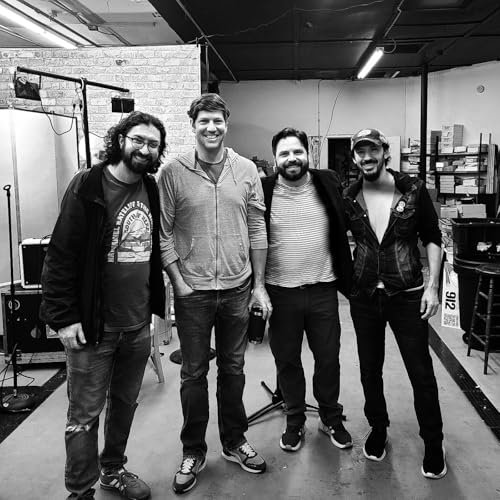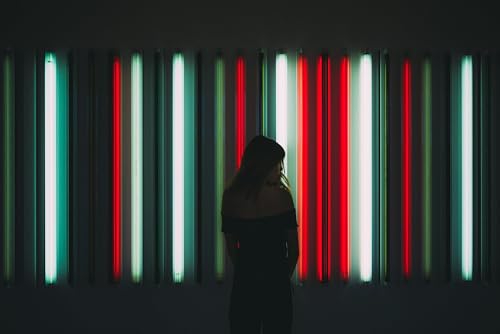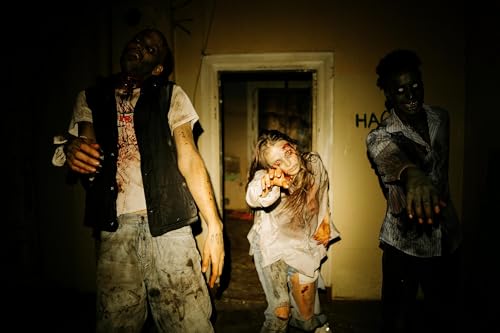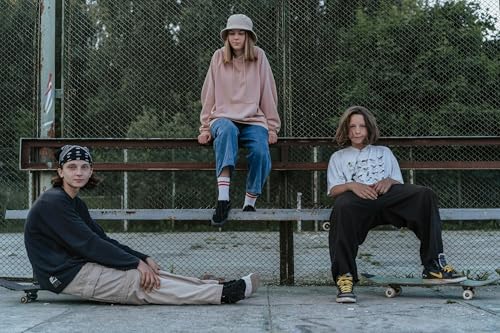Summary
A chance encounter at a pizza place led me on a journey to understand why it made me so happy. Through conversations with three childhood friends - Tony, Marc, and Andy - I discover something profound about how authentic relationships actually form. This isn’t just nostalgia; it’s an investigation into what made these friendships different and why they’ve lasted over 30 years.
The answer challenges everything we think we know about building trust and community: these relationships weren’t formed through careful trust-building, but through accidental vulnerability - being goofy and open before they knew it was dangerous.
Timestamps
(00:00) - Pizza Encounter
(02:17) - Sharing Stories of Non-Betrayal
(05:20) - More Stories of Kids Being Kids
(07:57) - Musical Insights
(10:23) - Writing Songs Naked
(11:55) - Accidental Vulnerability
(13:50) - What does Community Mean Now? Andy
(15:39) - What does Community Mean Now? Marc
(16:53) - What does Community Mean Now? Tony
(18:32) - The Magic of Getting Lost in Chicago
(20:18) - Thank Yous and End Matters
Key Themes
Accidental Vulnerability: How being vulnerable before knowing it’s risky can create deeper trust than calculated relationship-building
Childhood Innocence: The advantage of acting without self-consciousness and how “being dumb enough to not know you couldn’t” enables authentic connection
Safety and Trust: Why absolute trust (“no backstabbing to worry about”) was the foundation that allowed for complete vulnerability
Kids Being Kids: How physical playfulness, shared silliness, and creative collaboration build lasting bonds
Community Creation: The difference between consuming community versus participating in creating it
Memorable Quotes
“I was never gonna betray anyone. I felt like I knew that about all you guys too.” - Marc
“We acted goofy because we did not yet know that was dangerous.” - Eric
“The reason I can play music is because I was like dumb enough to not know I couldn’t… That’s part of the advantage of being young.” - Marc
“Self-consciousness kicked in at some point, right? It turns on at some point in your life.” - Marc
“It’s like flipping a switch… there’s people I see all the time, it’s still awkward. Yeah. And there’s people I see all the time. It’s still awkward.” - Tony
Stories Featured
• The Restaurant Encounter: A chance meeting that triggered decades-old memories
• The Charlie Horse Ritual: Daily “attacks” that became bonding instead of bullying
• Three Amigos in the Hallway: Singing movie songs while people stared, not caring about social judgment
• The Newsies Secret: Sharing vulnerable experiences (liking musicals as teenage boys)
• They Might Be Giants Concert: Getting lost in Chicago and finding the universe singing their experience back to them
Reflection Questions
• What relationships in your life were formed through accidental vulnerability rather than calculated trust-building?
• When did you first become self-conscious? What did you lose when that happened?
• How do you create safe spaces for others to be authentically themselves?
• What would it look like to be “dumb enough” to try something vulnerable today?
• Who are the people you can “flip a switch” with, even after years apart?
Resources & References
• The Three Amigos (1986) - The movie that became a bonding ritual
• Stand By Me - Referenced as similar to their childhood adventures
• They Might Be Giants - The band whose concert provided a transcendent moment
Call to Action
Think about the communities you’re part of. Are you consuming them or participating in creating them? This week, try one act of accidental vulnerability - do something goofy, genuine, or slightly risky in the service of connection.
About The Better
This podcast explores what it means to experience “the better” - true rest, community, and purpose - in our daily lives. Through personal stories and conversations, we investigate how authentic connection actually works and what it takes to build communities where everyone can thrive.
Subscribe for new episodes exploring community, purpose, and what it means to live well together.
Share this episode with someone you can “flip a switch” with - an old friend who knew you before you learned to be careful.
This is a public episode. If you would like to discuss this with other subscribers or get access to bonus episodes, visit erictomeo.substack.com
 2025/08/1312 分
2025/08/1312 分 2025/07/3022 分
2025/07/3022 分 2025/07/1615 分
2025/07/1615 分 2025/07/0214 分
2025/07/0214 分 2025/06/1816 分
2025/06/1816 分 2025/06/0410 分
2025/06/0410 分 2025/05/2117 分
2025/05/2117 分 2025/05/0716 分
2025/05/0716 分
